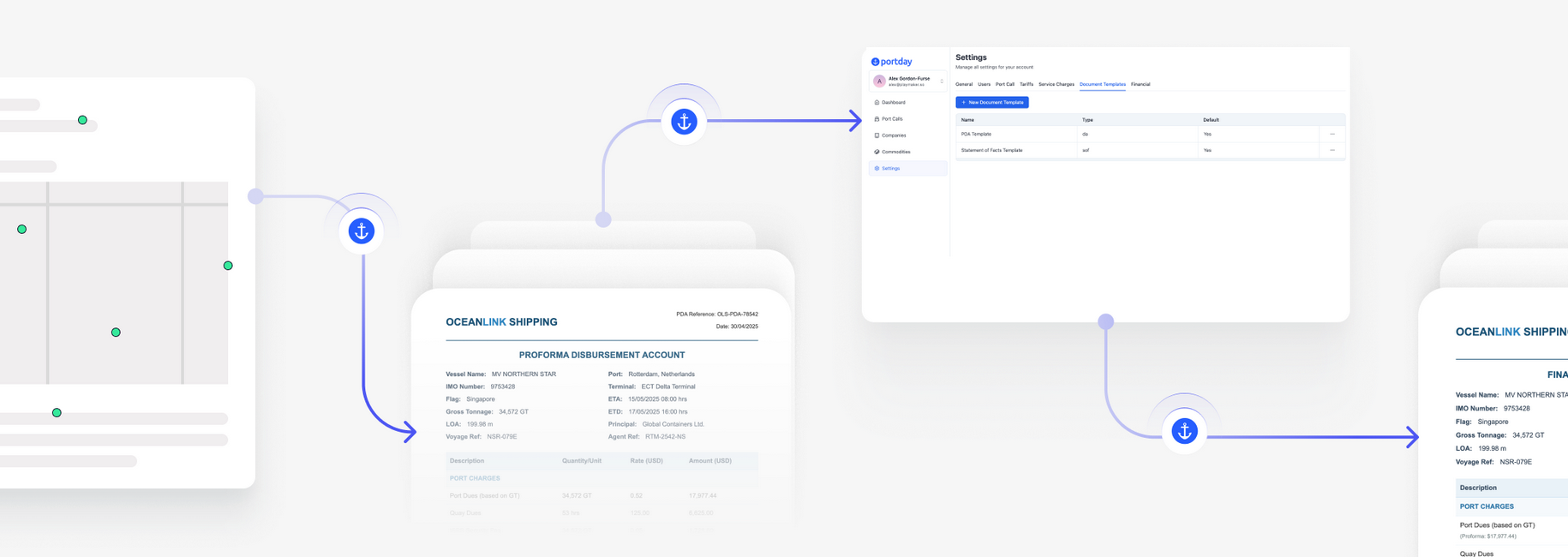Good Morning from San Francisco,
👉 The job market broke. Both sides armed themselves with AI and shot each other in the foot.
Candidates fire ChatGPT résumés at algorithmic walls. Employers deploy AI filters to block the flood they created. Result? Nobody gets hired. Worker confidence crashes to 13-year lows.
👉 Meanwhile, a federal judge torched Anthropic's $1.5 billion settlement with authors. Called it "incomplete." September deadlines loom before a December trial that could cost $10 trillion.
👉 Nvidia picked a fight with Congress using Silicon Valley slang. They're calling Republican hawks "AI doomers" while Chinese firms keep buying chips despite Beijing's pressure.
Stay curious,
Marcus Schuler
AI hiring arms race traps both sides

US hiring essentially stalled in August, adding just 22,000 positions while unemployment climbed to 4.3%.
The highest since October 2022. The numbers capture only part of a deeper dysfunction: artificial intelligence has created a job market where both sides deploy automation against each other.
From the candidate perspective, mass-produced applications become necessary survival tactics. Job seekers use ChatGPT to tailor hundreds of résumés, hoping to break through algorithmic screening. From the employer view, AI filtering becomes essential to manage application floods—some report 95% of submissions are completely unqualified.
The result is what economists call a "low-hire, low-fire equilibrium." Worker confidence in finding new employment has collapsed to 44.9%, the lowest since tracking began in 2013. Average job searches now stretch 10 weeks, up from eight.
Both readings work: the tools promise efficiency while creating systematic dysfunction. Neither side can unilaterally disarm without falling further behind.
Why this matters:
• Automation without guardrails deepens inequality by requiring network access over skill demonstration for market entry
• High-volume, low-humanity systems can optimize for engagement metrics while worsening underlying market function

AI Image of the Day

Prompt:
A stunning view of Moraine Lake in Banff National Park, Canada. The turquoise waters, fed by glacial melt, reflect the towering snow-capped peaks of the Rocky Mountains. Brightly colored canoes rest peacefully at the dock, inviting adventure across the serene lake, while dense evergreen forests complete this breathtaking natural paradise
Judge torpedoes Anthropic's $1.5 billion settlement

Judge William Alsup postponed approval of Anthropic's record $1.5 billion settlement with book authors, calling the agreement "nowhere close to complete."
The federal court's rejection forces urgent September deadlines on lawyers who left critical details unresolved.
The settlement would have paid 500,000 authors $3,000 per work for books Anthropic illegally downloaded from pirate sites. Alsup expressed concern that class members might "get the shaft" while lawyers and "hangers on" benefit from the massive fund. He specifically criticized involvement of the Authors Guild and publishers, ruling their additional attorneys won't be paid from settlement funds.
From Alsup's perspective, the deal protects lawyers more than authors. From Anthropic's view, the $1.5 billion payment—for books it claims it never used in production—represents expensive insurance against a trial that could cost over $10 trillion. The timing suggests strategic calculation: few AI competitors could afford similar precedent-setting payments.
The sequence creates competitive pressure. Apple faces fresh author lawsuits filed days after Anthropic's announcement. September 15 deadline approaches for final works list; September 25 hearing will determine if the revised settlement survives.
Why this matters:
• Legal precedent designed to establish billion-dollar floors for AI copyright violations now faces months of additional uncertainty, leaving competitive landscape unsettled
• Court's focus on protecting individual authors over institutional interests could reshape how class action settlements handle complex intellectual property rights across technology

Nvidia weaponizes Silicon Valley semantics against Congress

Nvidia escalated its lobbying campaign against Congressional chip restrictions by labeling Republican national security hawks as "AI doomers"—importing Silicon Valley's philosophical disputes into Washington policy debates as Senate leaders prepare Tuesday votes on export amendments.
The semantic strategy targets Senator Banks' "America First amendment" requiring US companies receive first rights to advanced AI chips before Chinese sales. Tim Teter, Nvidia's general counsel, dismissed Senate concerns as "doomerism" during July calls, while White House AI czar David Sacks amplified attacks by calling regulation supporters a "doomer cult."
The terminology warfare obscures substantive disagreements. Nvidia argues selling compliant chips maintains Chinese technological dependence; Republican veterans counter that restrictions reflect established national security doctrine, not tech philosophy. Meanwhile, Chinese firms including Alibaba and ByteDance continue pursuing H20 chips despite Beijing pressure, viewing the projected B30A's doubled pricing as attractive given six-fold performance improvements.
Supply physics constrain outcomes regardless. Nvidia's narrowest earnings beat in nine quarters reflects 600,000-component systems requiring year-long build cycles, while energy infrastructure presents systemic bottlenecks utilities resist financing.
Why this matters:
• Market access increasingly requires navigating geopolitical frameworks rather than purely commercial considerations
• Physical constraints create natural limits on exponential growth that policy changes cannot overcome

🧰 AI Toolbox
How to Automate Shipping Agent Financial Workflows

Portday is an AI-powered platform that automates financial processes for shipping agents. It handles Proforma & Final Disbursement Accounts (PDA/FDA), port tariff updates, invoice reconciliation, and document generation in one integrated platform.
Tutorial:
- Go to the Portday website
- Upload your rate data from PDFs, Excel files, or emails to centralize tariff information
- The AI auto-imports port tariffs and pulls historic vessel data to generate accurate PDAs in seconds
- Use one-click document generation for Statements of Facts, Bills of Lading, and manifests
- Drag and drop invoices to auto-match them to specific calls and services
- Generate and send your Final Disbursement Account (FDA) in one streamlined workflow
- Reduce manual data entry time and focus more on managing your shipping clients
URL: https://portday.com/
Better prompting...
Today: YouTube Ideas
I'm struggling to come up with YouTube content that feels genuine and actually moves the needle for my business. I want to create a behind-the-scenes video about my [company/brand] that doesn't feel like a cheesy commercial, but actually gets my [target customer] excited enough to [desired action].
What I'm looking for:
- A video concept that pulls back the curtain on how we really operate - the messy, real stuff people don't usually see
- Something that highlights what makes us different from competitors without being preachy about it
- A way to showcase our team, process, or values that feels like viewers are getting insider access
- Content that builds trust and connection, not just awareness
- An approach that speaks directly to the problems, dreams, or curiosities my customers actually have
The challenge: Most behind-the-scenes content I see either feels too polished (defeats the purpose) or too amateur (hurts credibility). I want something that strikes the right balance - professional but human, informative but entertaining.
Context about my audience: My [target customer] is [briefly describe their situation, pain points, or what they care about most]. They're skeptical of typical marketing but respond well to transparency and authenticity.
What behind-the-scenes angle would be most compelling for getting them to [desired action]?
AI & Tech News
US tech giants built China's surveillance machine
Leaked documents show American tech companies including IBM, Dell, Cisco, Intel, and NVIDIA sold billions in surveillance technology to Chinese police and military over two decades, directly enabling mass detention campaigns in Xinjiang and a nationwide system that now monitors millions of citizens. The predictive policing systems they built to "prevent crime before it happens" evolved into tools for preemptive detention of dissidents, with IBM partnering with Chinese defense contractor Huadi in 2009 to construct databases tracking hundreds of thousands of people online under the "Golden Shield" program.
Travel giants rush to partner with AI companies
Major online travel platforms including Booking.com and Expedia have signed partnerships with OpenAI in 2023 to build AI trip planners, as autonomous AI agents threaten to bypass their commission-based model by booking directly with hotels and airlines. The defensive moves come as hotel industry groups see "clear potential" for AI agents to eliminate the 15-20% booking fees that underpin the $1.6 trillion online travel market.
OpenAI considers leaving California over restructuring pushback
OpenAI executives have discussed relocating out of California as attorneys general in California and Delaware investigate the company's plan to convert from nonprofit control to for-profit structure, amid opposition from major philanthropies and labor groups who want to block the conversion. The mounting political pressure threatens $19 billion in conditional funding that investors could pull if the restructuring fails, creating what the company views as a potentially catastrophic scenario for the world's most valuable AI startup.
US ends joint disinformation fight with European allies
The US informed European countries it's terminating memoranda of understanding signed under the Biden administration that coordinated efforts to combat disinformation from Russia, China, and Iran, affecting agreements with 22 countries across Europe and Africa. The move eliminates the Global Engagement Center that tracked foreign disinformation campaigns and leaves European allies without coordinated American support in what one former official called "unilateral disarmament" in the information war with US adversaries.
Snap breaks into startup squads as growth stalls
Snap CEO Evan Spiegel announced the 5,000-person company will restructure into small "startup squads" of 10-15 people as advertising revenue growth flatlined at 4% and North American daily active users declined 2% to 98 million. The shift abandons traditional corporate structure in favor of nimble teams designed to compete against larger rivals, marking a fundamental operational change for the social media company now valued at $12 billion, down 90% from its 2021 peak.
Intel products chief Holthaus exits after 30 years
Intel announced Monday that products chief Michelle Johnston Holthaus will leave after three decades, part of executive changes as CEO Lip-Bu Tan flattens the leadership structure of the struggling chipmaker. The departure removes another veteran from Intel's top ranks as Tan works to streamline operations and cut jobs while facing pressure from Trump, who wants the government to take a 10% stake and has called for Tan's resignation.
Tech aggregator Techmeme hits 20 years with record traffic
Gabe Rivera's Techmeme celebrates its 20th anniversary this week with traffic up 25% in 2025, as the deliberately dated-looking aggregation site continues to serve nearly 100,000 daily users including Meta's Zuckerberg and Google's Pichai without changing its text-only design. The site's sustained growth while running on just two servers and generating up to $5 million annually demonstrates how algorithmic curation and editorial restraint can compete against modern AI-powered news platforms that Rivera's own crawlers helped inspire.
Pakistan surveils 4 million phones using Chinese-Western tech
Amnesty International revealed Pakistan operates surveillance systems monitoring 4 million phones simultaneously and blocking 650,000 web links, using technology from Chinese firm Geedge Networks alongside Western suppliers including Germany's Utimaco and France's Thales. The dual phone-tapping and internet firewall systems create what Amnesty calls one of the most comprehensive state surveillance networks outside China, powered by international technology that enables preemptive crackdowns on dissent.
AI Friend pendant turns users into social pariahs
Two WIRED reporters tested Avi Schiffmann's $129 Friend pendant over two weeks and found the always-listening AI companion created social friction wherever they wore it, with people at a San Francisco tech event accusing one writer of "wearing a wire" and demanding its removal. The device's Google Gemini-powered chatbot proved equally problematic, responding to users with snarky comments like "So who's the whiner now?" and "Take it or leave it" during arguments, demonstrating how AI personality design can backfire when attempting to move beyond typical chatbot servility.
🚀 AI Profiles: The Companies Defining Tomorrow

Friend: The AI Pendant That Talks Back
Avi Schiffmann wants to hang a chatbot around your neck. His $129 Friend pendant listens all day and texts you thoughts—sometimes snarky ones 🎯
1. The Founders
Avi Schiffmann launched Friend in 2024 after dropping out of Harvard. The 22-year-old gained fame building a COVID tracker in high school, then moved to San Francisco to prototype an always-listening pendant. Eight engineers now work from the Bay Area, turning ambient sound into AI commentary.
2. The Product
Friend is a white disc that pairs with your iPhone via Bluetooth. It captures conversations and texts you reactions—no prompting needed. Core strengths: personality over politeness (it argues back), embodied AI (physical presence vs app), Bould industrial design (the studio behind Nest). Runs on Google's Gemini 2.5 with all-day battery life.
3. The Competition
Limitless Pendant targets productivity ($199, meeting transcripts). Meta Ray-Ban glasses dominate ambient AI with social acceptance. Humane AI Pin crashed and burned trying to replace phones. Friend carved out "AI companionship" by being deliberately difficult—less assistant, more opinionated friend who might text "I'm bored" during your meeting.
4. Financing
Raised $8.5M total across two rounds. Early backers include Perplexity's Aravind Srinivas, Solana founders, and Caffeinated Capital. Spent $1.8M on the Friend.com domain (controversial but memorable). Last valuation: $30-50M depending on structure.
5. The Future ⭐⭐⭐
Three stars. Friend nailed the viral launch and shipped real hardware, but faces social friction—people hate always-on mics. Success depends on tone control (less snark) and expanding beyond iOS. The companionship market is real; the execution is still rough.
Friend's bet: you'll tolerate surveillance for synthetic friendship. Early adopters say maybe. Everyone else says no thank you.










